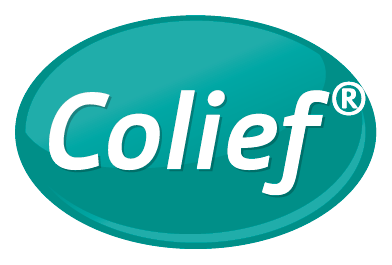Sunshine Vitamin D
What Is Vitamin D?
Vitamin D is a fat-soluble vitamin that is essential for the body’s overall health and functioning. It plays a crucial role in several important processes within the body. While sunlight is a primary source, Vitamin D can also be obtained from certain foods. Fatty fish like salmon, mackerel, and tuna, as well as cod liver oil, are excellent sources of Vitamin D. Additionally, small amounts can be found in egg yolks, cheese, and fortified dairy products.
There are two main types of Vitamin D that are important for human health:
Vitamin D2 (Ergocalciferol): Vitamin D2 is derived from plants, particularly fungi and yeasts. It is commonly found in fortified foods like cereals, dairy alternatives (such as soy milk), and supplements. Vitamin D2 can also be obtained through exposure to UV radiation from the sun, although it is less effective in raising Vitamin D levels compared to Vitamin D3.
Vitamin D3 (Cholecalciferol): Vitamin D3 is synthesized in the skin when it is exposed to UVB radiation from sunlight. It is also found naturally in some animal-based food sources, such as fatty fish (salmon, mackerel, and tuna), cod liver oil, egg yolks, and certain fortified foods and supplements. Vitamin D3 is considered more effective in raising and maintaining Vitamin D levels in the body compared to Vitamin D2.

Sources of Vitamin D
Sunlight is the main source of vitamin D. However not all of us get enough vitamin D from sunlight on our skin when we are outside, particularly during the winter months.
Suitable for all the family, Colief® Vitamin D3 Drops is a food supplement rich in vitamin D3 and the ideal solution for providing the required daily dose of vitamin D3. Colief Vitamin D3 Drops does not contain flavourings, added sugar, preservatives, or colourant.
Vitamin D Deficiency
Having too little vit D can be detrimental to the absorption of calcium and phosphorous in the body. This can lead to bone deformities such as rickets in children, and bone pain and tenderness resulting from a condition called osteomalacia in adults. Some people get enough vitamin D through exposure to sunlight, but 30−40% of people in the UK are deficient in winter. Most at risk are those with darker skins, babies and young children, adolescents, people over 65 years and those who are not exposed to much sunlight.
It’s worth noting that while moderate sun exposure is beneficial for Vitamin D synthesis, it’s important to take precautions to protect the skin from excessive sun exposure and the associated risks of sunburn and skin damage. Balancing sunlight exposure, dietary sources, and, if necessary, supplementation can help maintain optimal Vitamin D levels for overall health and well-being.

Who Should Take Vitamin D Supplements?
Babies who receive less than 500 ml of infant formula a day
Breastfed babies from birth
All pregnant & breastfeeding woman
Those aged 65 years or older
People with limited sun exposure
The latest government advice in the UK is that infants should begin taking a vitamin D supplement from birth, and pregnant and breastfeeding women, as well as infants and children, are at particular risk.
Here are some kid-friendly recipes that include foods rich in Vitamin D:

Salmon and Veggie Skewers
Ingredients:
- Salmon fillets, cut into cubes
- Assorted vegetables (bell peppers, cherry tomatoes, zucchini), cut into chunks
- Olive oil
- Lemon juice
- Salt and pepper
Instructions:
- Preheat the grill or oven.
Thread salmon cubes and vegetable chunks onto skewers, alternating them. - Drizzle olive oil and lemon juice over the skewers, and sprinkle with salt and pepper.
- Grill or bake the skewers until the salmon is cooked through and the vegetables are tender.
- Serve the skewers with a side of whole grain rice or quinoa for a nutritious and Vitamin D-rich meal.

Cheesy Mushroom Omelette
Ingredients:
- Eggs
- Button or cremini mushrooms, sliced
- Shredded cheese (cheddar, mozzarella, or your child’s favourite)
- Chopped fresh herbs (parsley, chives, or basil)
- Salt and pepper
- Olive oil or butter for cooking
Instructions:
- In a bowl, whisk the eggs together and season with salt and pepper.
Heat olive oil or butter in a non-stick skillet over medium heat. - Add the sliced mushrooms and sauté until they are cooked and slightly golden.
- Pour the whisked eggs over the mushrooms, and let it cook until the edges start to set.
- Sprinkle the shredded cheese and fresh herbs over the omelette.
Fold the omelette in half and cook until the cheese melts and the eggs are fully cooked. - Serve the cheesy mushroom omelette with whole wheat toast or a side salad.

Fortified Yogurt Parfait
Ingredients:
- Greek yogurt (plain or flavoured)
- Fresh berries (strawberries, blueberries, raspberries)
- Granola or crushed nuts
- Honey (optional)
Instructions:
- In a glass or bowl, layer Greek yogurt, fresh berries, and granola or crushed nuts.
- Repeat the layers until the glass or bowl is filled.
- Drizzle a small amount of honey on top for added sweetness if desired.
- Serve the fortified yogurt parfait as a nutritious breakfast or snack.
Colief Vitamin D3 Awards




Daily Immune Boost with Vitamin C
What Is Vitamin C?
Vitamin C, also known as ascorbic acid, is a water-soluble vitamin that plays a vital role in various bodily functions. It is an essential nutrient, meaning that the body cannot produce it on its own, so it must be obtained through diet or supplementation.
Vitamin C is found in many fruits and vegetables, including citrus fruits (such as oranges and lemons), strawberries, kiwi, guava, tomatoes, broccoli, bell peppers, and leafy greens. It is known for its strong antioxidant properties, which help protect cells from damage caused by harmful free radicals.
The benefits of Vitamin C include:
- Immune system support: Vitamin C plays a crucial role in supporting the immune system by enhancing the function of various immune cells and promoting the production of antibodies.
- Collagen synthesis: Vitamin C is necessary for the synthesis of collagen, a protein that is essential for the structure and health of the skin, bones, blood vessels, and connective tissues.
- Antioxidant activity: As an antioxidant, vitamin C helps neutralize free radicals, which are unstable molecules that can cause damage to cells and contribute to various health issues.
- Iron absorption: Vitamin C enhances the absorption of iron from plant-based sources, such as legumes and leafy greens.
- Wound healing: Vitamin C plays a role in the formation of connective tissue, which is important for wound healing and tissue repair.
It’s important to note that excessive intake of vitamin C through supplements can lead to digestive issues, such as diarrhoea or stomach upset.

Sources of Vitamin C
Vitamin C is found in many fruits and vegetables, including oranges, strawberries, kiwi fruit, bell peppers, broccoli, kale, and spinach.
While it’s commonly advised to get your vitamin C intake from foods, many people turn to supplements to meet their needs. Vitamin C cannot be stored in the body, so you need it in your diet every day.
Vitamin D Deficiency
Vitamin C deficiency is relatively rare in developed countries due to the availability of fresh produce and the addition of vitamin C to certain foods and supplements. Persistent lack of vitamin C in your diet can lead to a condition called scurvy. Symptoms of scurvy include easy bruising, easy bleeding, and joint and muscle pains. Vitamin C deficiency can be treated with supplements of vitamin C and a diet rich in vitamin C.


Suitable for all the family, Colief® Vitamin C Drops is a food supplement rich in vitamin C and free from yeast, gluten, corn, starch, wheat, nut, soy, and dairy. Easily added to water, juice or milk it can be taken by children aged one year upwards. Colief Vitamin C Drops is a convenient, sugar-free daily supplement, and is produced without artificial flavours, colours, or preservatives.
Here are some kid-friendly recipes that include foods rich in Vitamin C:
Citrus Berry Smoothie
Ingredients:
1 orange, peeled and segmented
1 cup mixed berries (such as strawberries, blueberries, raspberries)
1 banana
1 cup spinach leaves
1 cup almond milk (or any other preferred milk)
Optional: honey or maple syrup for sweetness
Instructions:
Combine all the ingredients in a blender.
Blend until smooth and creamy.
Taste and add sweetener if desired.
Pour into glasses and enjoy a refreshing and Vitamin C-packed smoothie.

Fruit Kebabs
Ingredients:
Assorted fruits rich in Vitamin C (such as strawberries, kiwi slices, pineapple chunks, oranges, and grapes)
Instructions:
Cut the fruits into bite-sized pieces.
Thread the fruit pieces onto wooden skewers, alternating the fruits to create colorful kebabs.
Serve the fruit kebabs as a fun and healthy snack option for kids.

Rainbow Fruit Salad
Ingredients:
Assorted fruits rich in Vitamin C (such as strawberries, oranges, pineapple, kiwi, blueberries, and grapes)
1 tablespoon honey (optional)
Instructions:
Wash, peel (if needed), and dice the fruits into bite-sized pieces.
In a large bowl, combine the fruits and gently toss them together.
If desired, drizzle honey over the fruit salad for added sweetness.
Serve the colourful fruit salad as a nutritious and vibrant dessert or snack.

Tomato Basil Pasta
Ingredients:
2 cups cooked pasta (your child’s favourite type)
1 cup cherry tomatoes, halved
1/4 cup fresh basil leaves, chopped
2 tablespoons extra-virgin olive oil
1 tablespoon freshly squeezed lemon juice
Salt and pepper to taste
Instructions:
In a large bowl, combine the cooked pasta, cherry tomatoes, and basil leaves.
Drizzle the olive oil and lemon juice over the pasta mixture.
Season with salt and pepper, and toss well to combine.
Serve the tomato basil pasta as a nutritious and flavourful main course or side dish.
These recipes offer a tasty way to incorporate Vitamin C-rich foods into your child’s diet. They can be enjoyed as snacks, desserts, or main courses, providing essential nutrients in a fun and appealing way.
